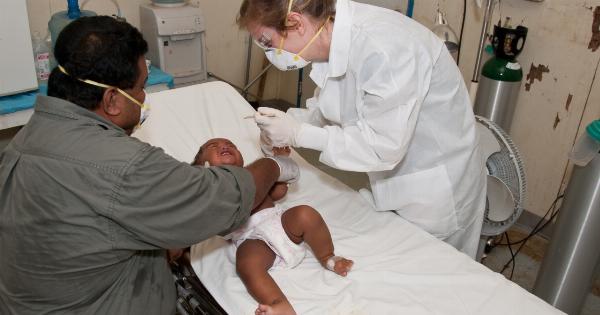As men age, their prostates undergo a change that is often referred to as benign prostatic hyperplasia (BPH), which is a noncancerous enlargement of the prostate gland.
BPH is a normal part of the aging process and affects up to 90% of men over the age of 80, but it can cause bothersome urinary symptoms. In this article, we will discuss the normal changes that occur in the prostate gland and how they can impact men’s health.
The Prostate Gland
The prostate gland is a small gland located in the pelvis of men and is responsible for producing the fluid that carries sperm during ejaculation. The gland surrounds the urethra, which is the tube that carries urine from the bladder out of the body.
Because of its location, any changes in the prostate gland can impact urinary function.
BPH and Urinary Symptoms
The symptoms of BPH can vary from person to person, but the most common symptoms include:.
- Frequent or urgent need to urinate
- Difficulty starting urination
- Weak urine stream or a stream that stops and starts
- Increased frequency of urination at night
- Inability to completely empty the bladder
- Urinary tract infections
These symptoms can cause discomfort and inconvenience, but they are not life-threatening. If left untreated, BPH can lead to more serious complications, such as acute urinary retention, kidney damage, and urinary tract infections.
Therefore, it is important for men experiencing urinary symptoms to seek medical attention.
BPH Diagnosis
To diagnose BPH, a doctor will perform a physical exam and review the patient’s medical history.
They may also order blood tests, urinalysis, or imaging tests to rule out other conditions that can cause similar symptoms, such as prostate cancer or a urinary tract infection. In some cases, a biopsy may be recommended to rule out cancer.
BPH Treatment Options
The treatment plan for BPH will depend on the severity of the symptoms and the patient’s overall health. The most common treatment options include:.
- Watchful waiting: For mild symptoms, a doctor may recommend monitoring the condition and making lifestyle changes, such as limiting caffeine and alcohol intake, to alleviate symptoms.
- Medication: Several types of medications are available to treat BPH, including alpha-blockers, 5-alpha-reductase inhibitors, and combination medications. These medications work by either relaxing the muscles in the prostate or shrinking the gland itself.
- Minimally invasive procedures: For more severe cases of BPH, minimally invasive procedures may be recommended to remove or destroy some of the prostate tissue. These procedures include transurethral microwave therapy, laser therapy, and transurethral needle ablation.
- Surgery: In rare cases, surgery may be recommended to remove the entire prostate gland. This procedure is typically reserved for patients with severe symptoms who do not respond to other treatments.
It is important for men to work closely with their doctor to determine the best course of treatment for their individual needs.
Prevention and Management of BPH
While BPH is a normal part of the aging process, there are steps men can take to reduce their risk and manage symptoms:.
- Stay active: Regular exercise can help reduce the risk of developing BPH and alleviate symptoms in those who already have the condition.
- Eat a healthy diet: A diet rich in fruits, vegetables, and whole grains can help reduce inflammation and promote prostate health.
- Avoid bladder irritants: Caffeine, alcohol, and spicy foods can irritate the bladder and exacerbate urinary symptoms. Limiting or avoiding these items may help alleviate symptoms.
- Practice good hygiene: Keeping the genital area clean and dry can help reduce the risk of urinary tract infections.
- Attend regular check-ups: Men should see their doctor for regular prostate exams and screenings to monitor any changes in the gland.
Conclusion
BPH is a normal part of the aging process for men, but it can cause bothersome urinary symptoms. If left untreated, it can lead to more serious complications.
It is important for men to seek medical attention if they are experiencing urinary symptoms to determine the best course of treatment. Making lifestyle changes and attending regular check-ups can help reduce the risk and manage symptoms of BPH.



























